7 Innovative Healthcare Business Ideas for Startups and Entrepreneurs
In the current world where the delivery of health care is changing at a very fast rate, it is innovation that is the key to change. In 2024, the global Digital Health market is expected to reach US$171.90bn, and the annual growth rate (CAGR 2024-2029) of 8.49%, resulting in a projected market volume of US$258.30bn by 2029. It is an incredible opportunity for entrepreneurs and startups to leverage the advanced solutions and work on the issues that the industry faces.
You are at the center of this move, as a startup or an entrepreneur in the healthcare industry, and the possibilities are endless on how you can change the face of patient care, doctors’ approaches, and data management and sharing. The combination of technology, medical knowledge and the increasing need for better and cheaper health care has provided the necessary conditions for innovative business models to emerge and meet the needs of the modern consumer and health care providers.
Healthcare Opportunities for Startups
We will discuss seven promising healthcare business ideas that will be of interest to startups. These ideas are intended to help inspire you whether you are interested in creating AI diagnostic tools, leveraging the growth of telemedicine, or creating telemedicine platforms. Every business idea incorporates technology in one way or another, thus assisting you in establishing your market in an industry that is waiting to be disrupted.
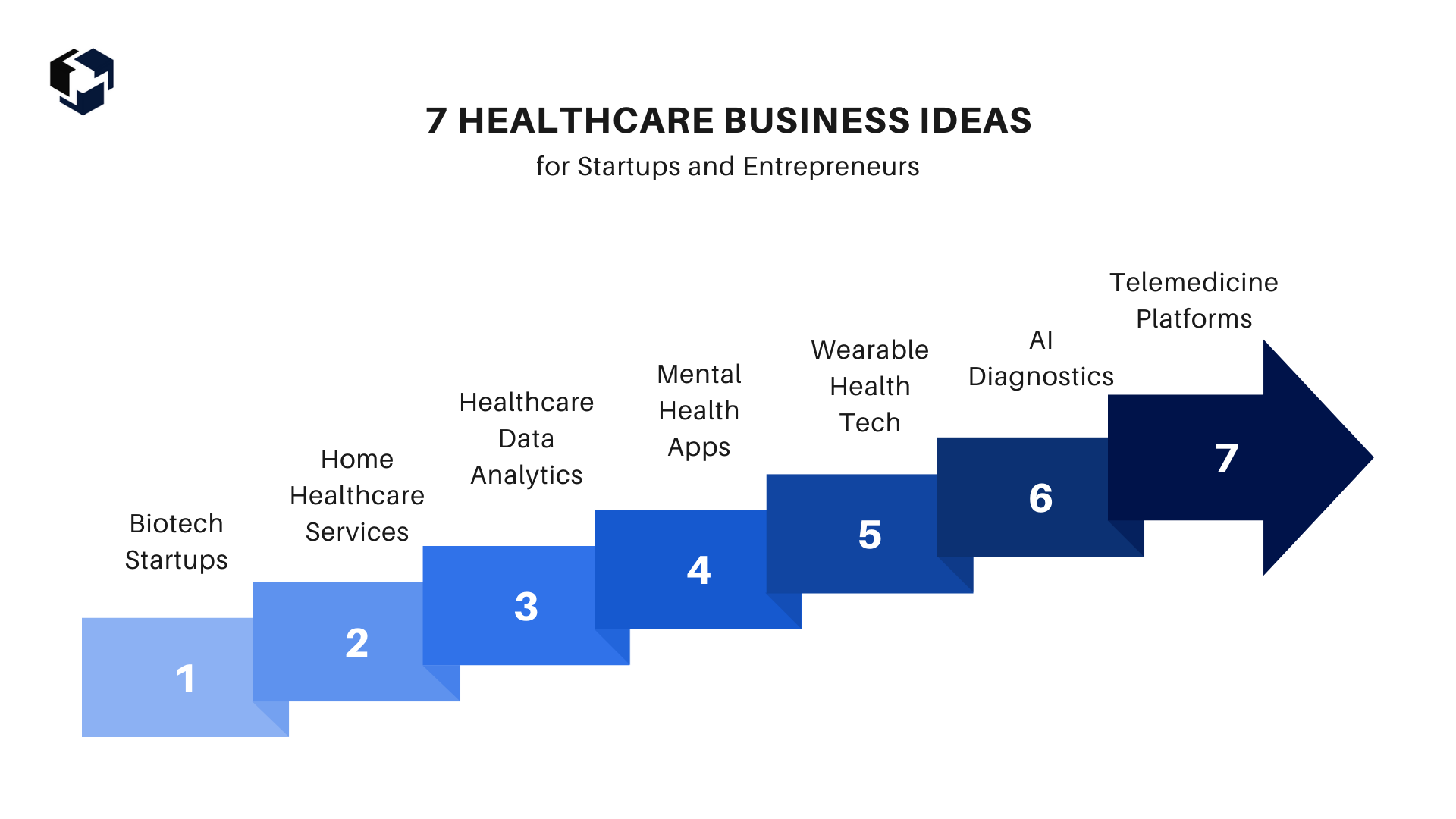
Healthcare is a very broad industry and there are many business opportunities for the individual who wants to start a medical business or a healthcare mobile app, medical billing services, medical transcription services, medical records management and so on To name some of the best medical field business ideas you could consider the following.
1. Telemedicine Platforms
The use of telemedicine has increased tremendously, especially after the pandemic, this is because patients want to access healthcare services through the internet. Telemedicine applications allow for consultations, diagnosis, and subsequent monitoring without physical contact.
Telemedicine can be developed as a full-fledged business for startups, offering clinics, hospitals, or specific medical practices all-encompassing video consultation, appointment-setting, and prescription services.
As cited by MarketsandMarkets, the market for telemedicine is projected to reach USD 285.7 billion by 2028 from USD $87.8 billion in 2022, at a CAGR of 23.2 % during the forecast period.
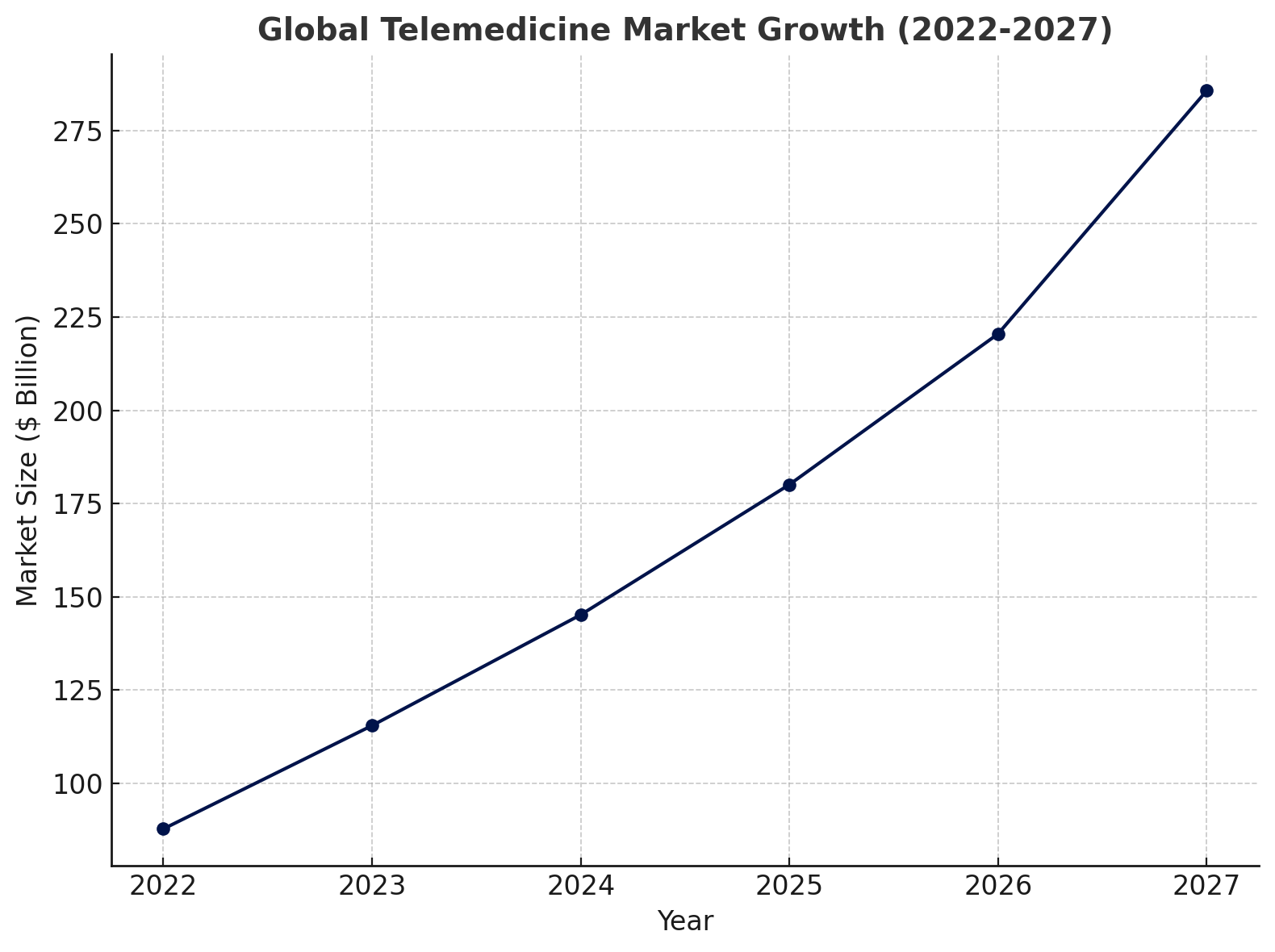
Telemedicine helps the underprivileged areas especially the rural areas where access to health care facilities is scarce. Venture capitalists are investing more into telehealth startups because they view the long-term potential.
2. AI-Powered Healthcare Diagnostics
Diagnostics is one of the fields that are being impacted by Artificial Intelligence through early and accurate diagnosis of diseases including cancer, heart diseases, and eye diseases. AI improves medical imaging and optimizes the diagnosis.
Startups can create diagnostic platforms based on AI that will focus on specific diseases such as cancer or eye diseases and will be more effective and cheaper than the existing ones.
According to Accenture, AI in healthcare is expected to create $150 billion of annual value by 2026 based on outcome enhancement and operational cost optimization.
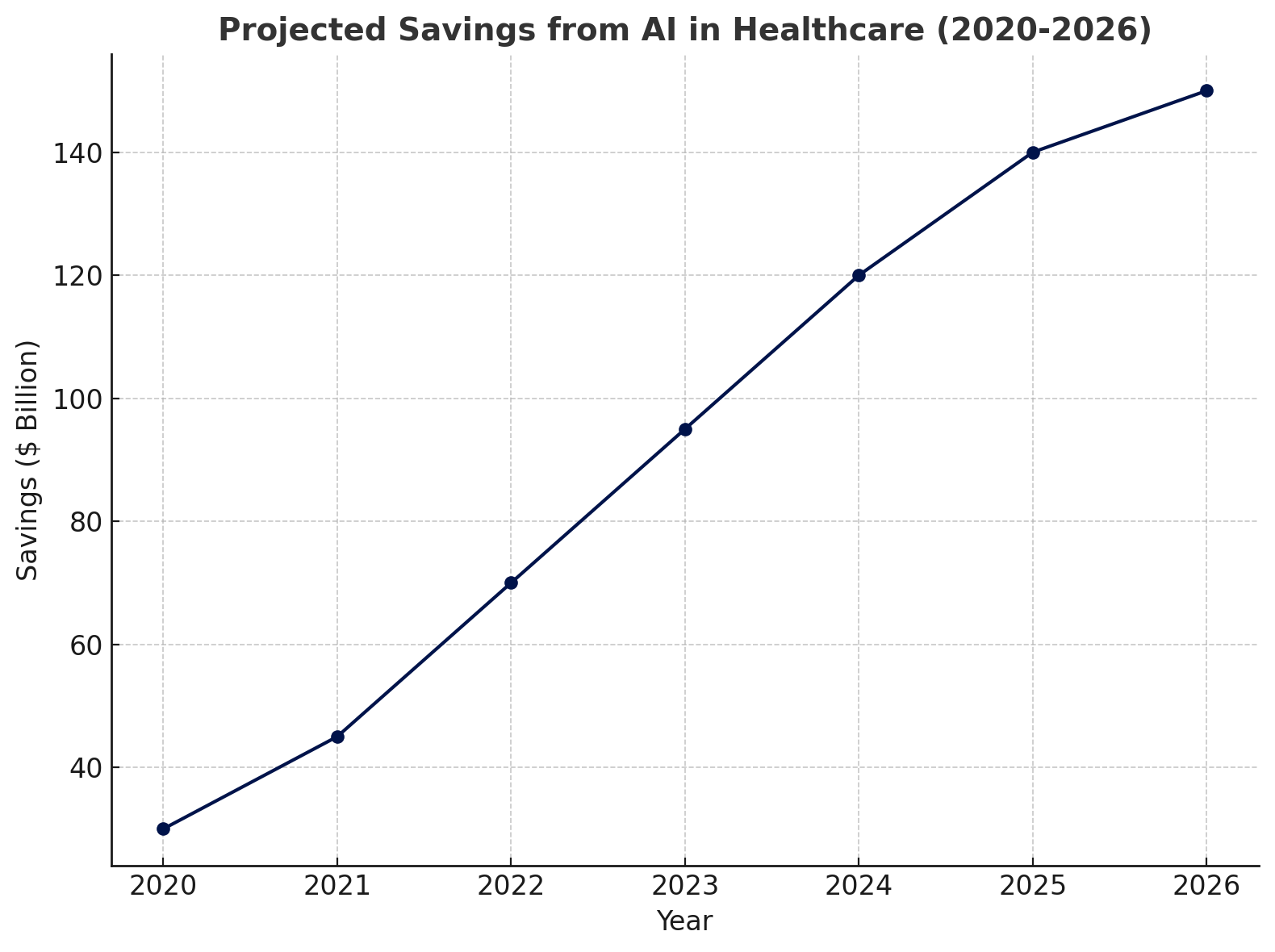
AI helps eliminate diagnostic mistakes, and the accuracy of diagnoses, especially in the early stages of diseases, is considerably higher, and the costs of both patients and medical facilities decrease.
3. Wearable Health Tech
Some of the features that are in the market include smartwatches and fitness trackers that monitor the pulse and blood oxygen levels. These devices provide health information to the patients and the health practitioners in real-time.
Develop small health monitoring devices that are integrated with telemedicine capabilities and additional features for patients with chronic conditions.
According to Statista, the market of wearable healthcare devices in the global economy was more than 25 billion US dollars in 2023. The market had estimated that by the year 2029 it would reach 76 billion US dollars.
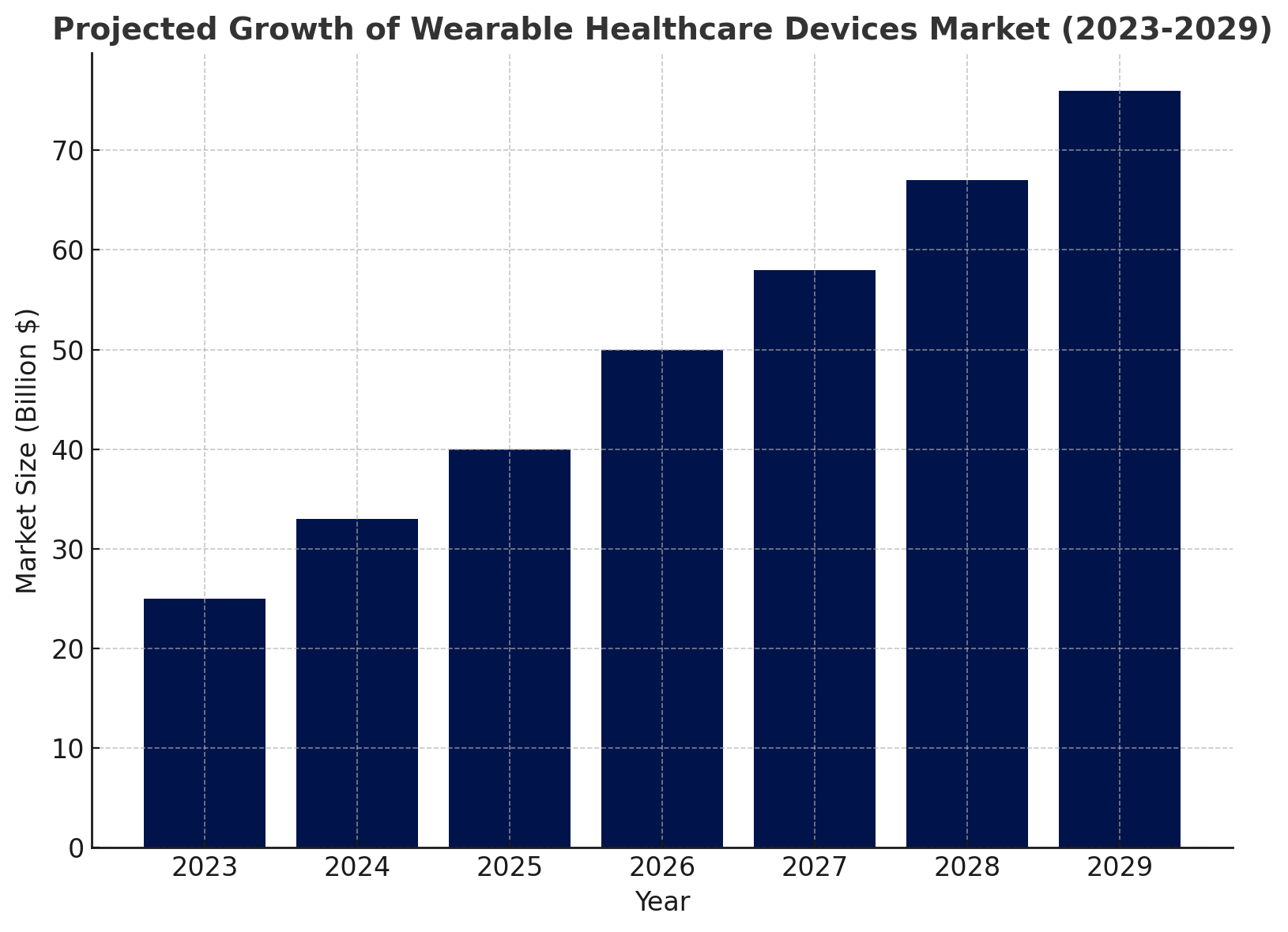
The founders of startups should pay attention to data security and integration with the existing healthcare systems to build trust among patients and meet the requirements of the legislation.
4. Mental Health Apps
As people become more conscious on their mental health, applications that provide therapy, meditation, and other wellness services are increasing in demand. These platforms can be used to get professional help in cases of mental health issues from the comfort of one’s home.
Create an application that focuses on mental health and which provides the users with such options as online therapy, meditation, and more for the different target audiences.
The mental health apps market size was valued at USD 5.05 billion in 2022. It is forecasted that the market would rise to USD 5.72 billion in 2023 to USD 16. 50 billion by the end of 2030 with a Compound Annual Growth Rate of 16.3% in the forecast period by Fortune Business Insights.
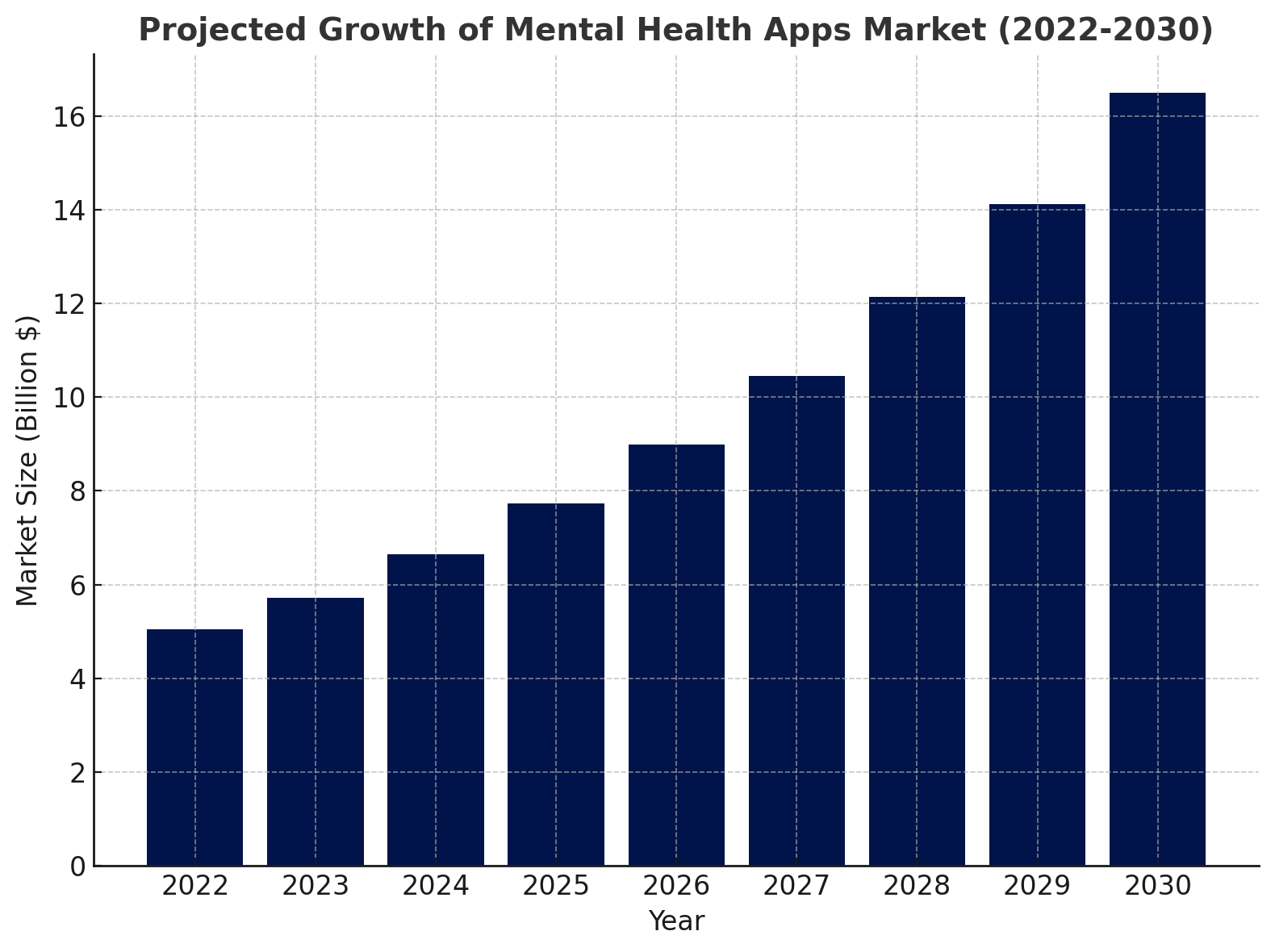
The increased focus on mental health issues after the pandemic means that there is a huge market that has not been fully explored in the mental health industry especially for subscription-based services.
5. Healthcare Data Analytics Platforms
Data analytics is the future of healthcare since it allows the use of data in decision making, enhancement of patient care and management of hospitals. The use of big data analytics is helping in the accurate analysis of trend and patient outcome.
With the awareness of individuals on mental health, then there is a rise in the use of applications that offer therapy, meditation among other wellness services. It is through such platforms that one can get professional help in situations where one has mental illnesses from the comfort of their home.
As stated by Grand View Research, The global healthcare analytics market size was valued at USD 11. 59 billion in 2018 and is expected to USD 365.82 billion in the year 2032, with a CAGR of 28.1% in the forecast period that is from 2018 to 2023.
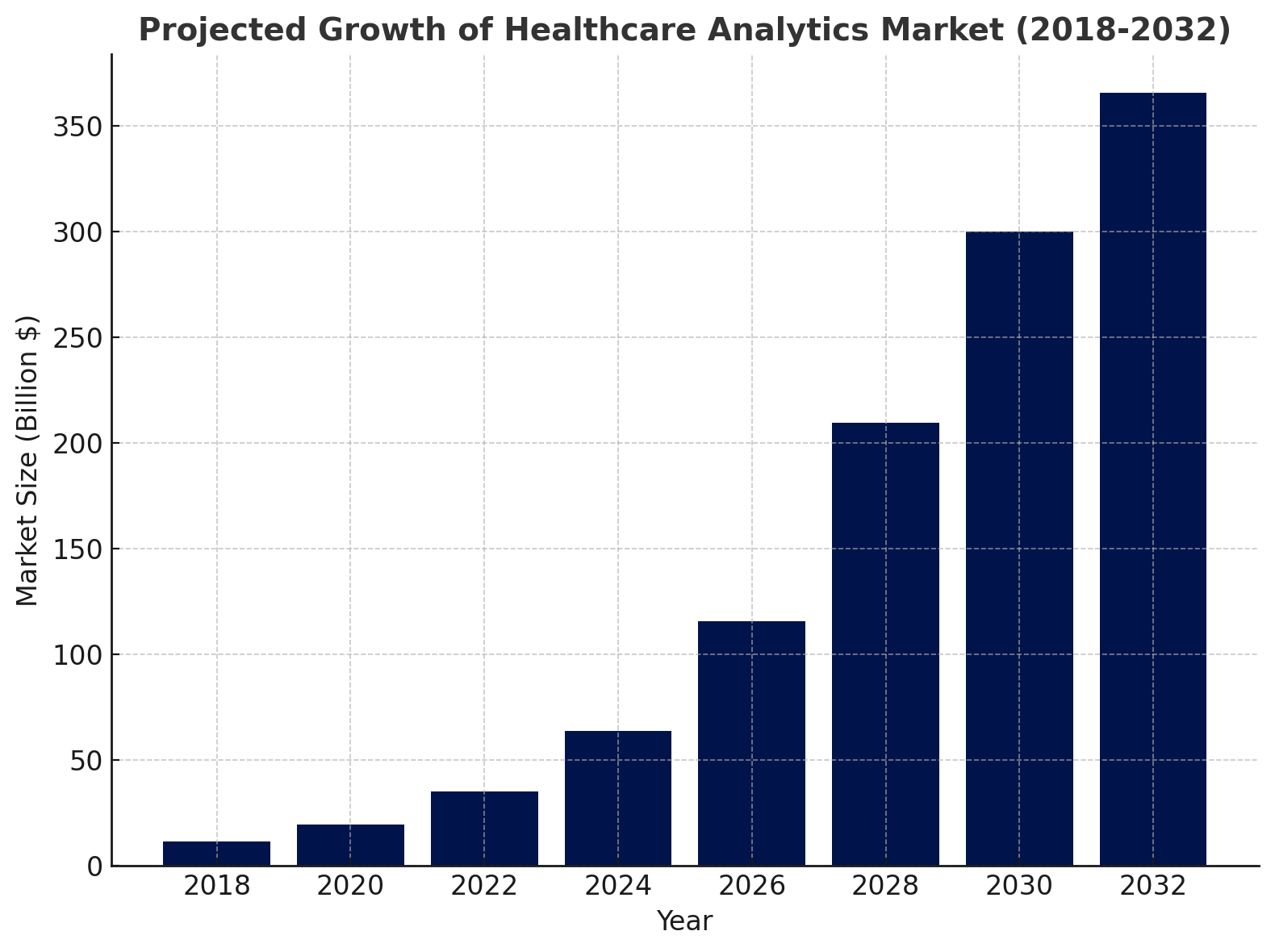
Healthcare data analytics is the life wire of innovation in the healthcare sector, which informs the management decisions of the health systems.
6. Home Healthcare Services
There is an increasing need for home healthcare services especially for old persons and patients with chronic diseases. These services provide individual attention and treatment to the patients right in their homes thus relieving the hospitals.
Home healthcare services can be provided by startups as a part of their services, with telehealth and AI caregiving systems, which can help to deliver quality care to the patient.
Mordor Intelligence in its report stated that the home healthcare market size is expected to grow from $309.7 billion in 2024 to $500.39 billion by 2029, out of which services such as elderly care, chronic disease management, physical therapy, and post-surgery care will dominate the demand. They are important in enhancing the health of patients and in alleviating the pressures within the hospitals.
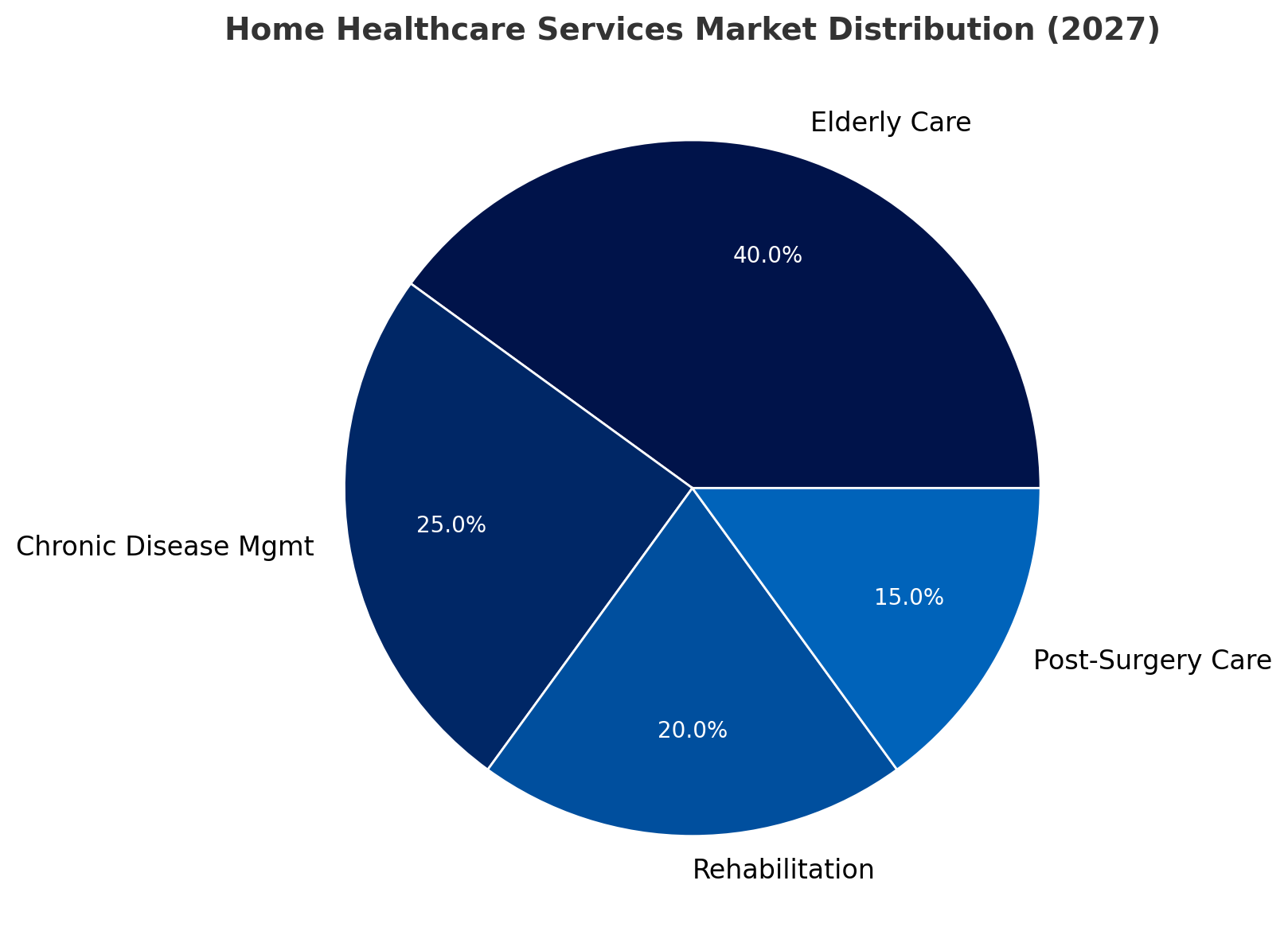
In this sector, it is important to focus on quality and the fulfillment of the requirements of the regulatory bodies as well as the use of such trends as telemonitoring and artificial intelligence as a way of enhancing the quality of services delivered.
7. Biotech Startups in Personalized Medicine
The use of biotechnology is changing the face of personalized medicine because treatment can be developed to suit an individual patient’s genetic profile. It is particularly applicable in such fields as oncology and other diseases that are not widespread among the population.
Develop biotech products based on genetic profiles of diseases such as genetic disorders, rare diseases, or oncology where there will be an effective solution that will be tailored to meet the specific needs of the patient.
It was reported by Statista that the global personalized medicine market was $512 billion in 2022 and is expected to be $1,104 billion by 2032.
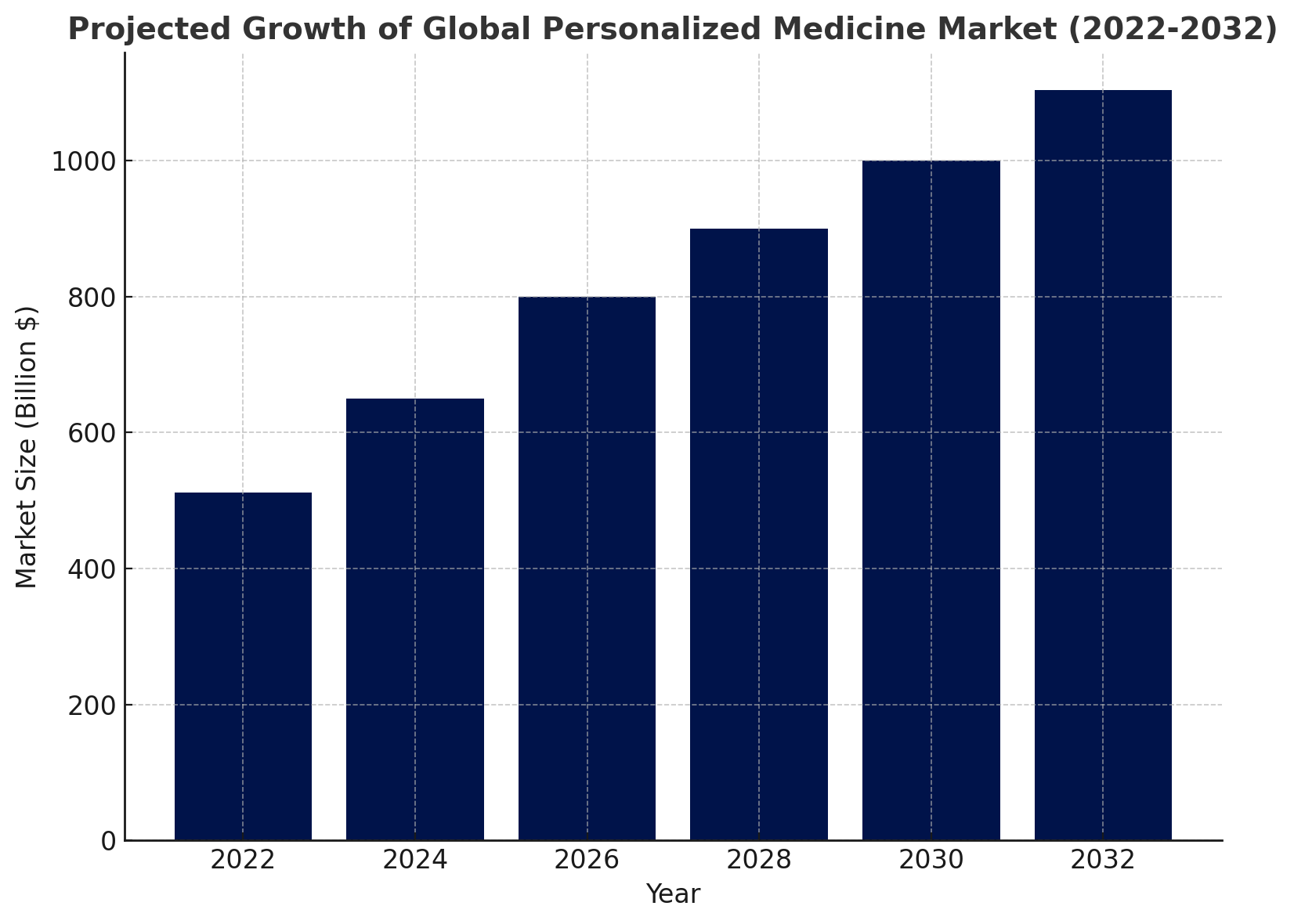
Personalized medicine will be very vital in the future healthcare delivery system due to patients’ benefits and reduced side effects of treatment.
Lead the Future of Healthcare Innovation with App Maisters
Do you have a groundbreaking healthcare business idea? At App Maisters, we embrace our client’s idea and ensure you get what you want, which is a perfect digital creation. Whether it’s designing AI-based diagnostics or introducing a telemedicine service or developing wearable health tech, we have you covered. Our team is dedicated to bringing the best innovation in technology that will and should revolutionize healthcare.
Ready to make an impact? Contact us today and let’s collaborate to revolutionize healthcare together through powerful, tech-driven solutions.
FAQs
What are the top healthcare business ideas for startups?
Some of the areas that startups can consider are telemedicine, healthcare diagnostics through artificial intelligence, wearable health technology, mental health applications, healthcare data analysis platforms, home health care services and biotechnology companies that deal with personalized medicine.
How is telemedicine impacting healthcare?
Telemedicine involves consultations, diagnosis and follow up without physical contact hence enhancing access to health care especially in the rural or hard to reach areas. The telemedicine market is expected to grow at a CAGR of 19% and is expected to reach $285. 7 billion by 2028.
What role do wearable health technologies play in patient care?
Smart bands and smart watches track the vital signs of the patient and make available the health information to the patient and the health care givers to ensure constant health check and health management.
Why are mental health apps a growing market?
Mental health apps meet the growing need for mental health products and services by providing therapy, meditation, and other mental health services. This sector is expected to grow very fast and is expected to reach $16. 50 billion by 2030.
How can AI be leveraged in healthcare diagnostics?
AI enhances the diagnostic proficiency in diseases including cancer and heart diseases through enhancing the imaging and data analysis. It minimizes the chances of human interferences and increases the chances of early diagnosis hence decreasing mortality and health costs.




















